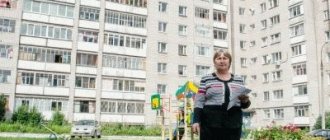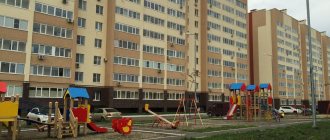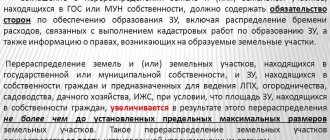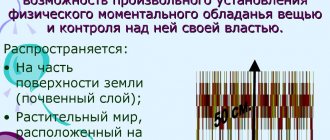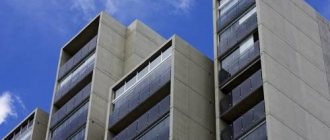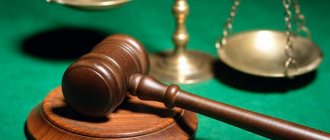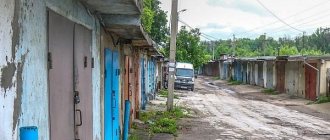Home/HOA/How to become a member of the HOA?
A homeowners' association is an organization (legal entity) that is created by the owners of apartments in an apartment building. One of the current problems is the reluctance of residents to take part in the process of maintaining the life of the house, eliminating existing problems and wasting time on resolving issues related to the maintenance of common property and the use of common resources. But there is also the “other side of the coin” - apartment owners who are interested in quality management of the housing stock. They strive to join the HOA and become its full participants.
Normative base
The main document that regulates the activities of the Homeowners Association is the Housing Code. Its functioning is regulated by Art. 136-137, 145-149, 151-152, 156 Housing Code of the Russian Federation. The code states that the creation of an HOA is carried out within the framework of a general meeting, at which there must be representatives who have the maximum number of votes out of their total number. This requirement is enshrined in Art. 136 Housing Code of the Russian Federation. It is also noted there that the owners of premises in an apartment building have the right to create only one Partnership.
Attention! If you have any questions, you can chat for free with a lawyer at the bottom of the screen or call Moscow; Saint Petersburg; Free call for all of Russia.
Attention
The legal capacity of an HOA is vested upon completion of the state registration procedure, which is carried out in accordance with the legislation “On State”. registration of legal entities and individual entrepreneurs" dated 08.08.2001 No. 129-FZ. In ch. 3, 4 the general order in which this process occurs is established. The legal role within the HOA is formed in accordance with the Charter, which is the only constituent document for this type of non-profit structure. Clause 4 art. 135 of the RF Housing Code contains a dispositive norm, according to which the formation of an HOA takes place for an indefinite period of time.
Rights and obligations of the homeowners association
The list of rights of the HOA is defined in Art. 137 of the Housing Code of the Russian Federation:
- concluding agreements related to management activities in relation to apartment buildings;
- determination of revenue and cost estimates for the year ahead, including capital expenditures. repair, reconstruction, implementation of special contributions and deductions to reserves;
- establishing the amounts of contributions and payments for each owner individually, according to his part in the right of common ownership;
- performing work and providing services to homeowners;
- use of bank loans;
- transfer of material resources to persons performing work and services;
- sale and transfer for temporary disposal of property owned by the HOA;
- acquisition of ownership of plots of land for the purpose of carrying out work on housing or household construction. objects;
- concluding transactions and solving other problems in the interests of the HOA.
The responsibilities of the HOA are specified in Art. 138 of the Housing Code of the Russian Federation, these include the following areas:
- ensuring compliance with the norms and laws of the Russian Federation;
- concluding agreements related to the maintenance and repair of property in common ownership;
- ensuring optimal plumbing condition of common areas;
- fulfillment by all owners of apartment building premises of obligations related to the maintenance and repair of common property;
- respect for the rights and interests of all apartment owners;
- taking timely measures required to prevent or stop the actions of third parties violating the rights of owners;
- representation of the legitimate interests of owners.
When can you become a member of the HOA?
The basic norms and key provisions related to membership in the HOA are noted under Art. 143 Housing Code of the Russian Federation. In accordance with this document, absolutely all persons who own apartments located in an apartment building have the right to become members of the HOA. In this case, the decision is made independently and of one’s own free will.
IMPORTANT
It is possible to achieve replenishment of the ranks of the Partnership both during its formation and subsequently. If new homeowners move into an apartment building, they also have the right to become members of the HOA. Membership is considered recognized from the moment the corresponding application paper is written and submitted.
What agreement with the participants is the main one?
Contractual relations between participants and the management board are provided for by law. The agreement is concluded with each resident receiving membership separately.
The document will concern the provision of services for the maintenance of the house, property under common management, and so on.
In this case, contracts can be concluded separately both on issues of utility services and directly on the content.
The basis of the agreement is the current legislation, the charter of the institution, standards for using the house, contracts that are concluded with companies - representatives of the housing and communal services of a particular locality.
Step-by-step instructions for joining an HOA
In practice, the step-by-step instructions for joining a Homeowners Association are as follows:
- Preparation of documents. Their list will be discussed below. As soon as the owner has ownership of the home, he has the right to prepare papers for joining the HOA. Documents must be submitted in the form prescribed by law. At the same stage, an application for joining the HOA is created.
- Conclusion of an agreement. Membership in the HOA is possible only on the basis of concluding a contractual document.
It includes a list of data about the parties, in particular, their names, addresses, telephone numbers, etc. The subject of the agreement is the activities of the HOA. It specifies the rights and obligations of the parties, as well as the conditions of membership and termination procedures. Attention The agreement must be signed by the Chairman and the member of the HOA, storage takes place on both sides. - Entry into the register. The document includes a list of information about all members of the Partnership, namely their personal and contact information, materials about the areas of their property, addresses, and date of registration in the HOA. The same information is contained in the document regarding the common property of the residents.
After this, membership in the HOA is considered valid and is regulated by the provisions of Art. 143 Housing Code of the Russian Federation.
Register number
What is the number of homeowners association members? According to the Housing Code, every HOA is required to have a register . This document is a list of everyone who is part of the partnership.
But the register is not just a listing of residents ; it contains quite extensive data about each, including information about the size of the share that is owned by a resident of an apartment building.
This information must be submitted to the HOA without fail.
The same applies to all kinds of changes that have occurred to the property.
The register must have a title page on which the following data is indicated:
- name of the locality;
- date of formation of the community;
- legal address;
- details of the authority where the registration took place, its number and date;
- total area of the apartment building;
- area owned privately by community members;
- the organization’s share in the common area of the building;
- information about the property of members of the partnership;
- information about the person in charge of the register.
There are rules for document preparation. The register will need to be stitched, the pages numbered, and the organization’s seal affixed where required. A copy of the register must be kept by the relevant regulatory authorities.
As for the number of residents of the building sufficient to create a management organization, the number must exceed half of the total number of apartment owners.
Watch the video: Pros and cons of HOAs
Pros and cons of HOAs
Required documents
Here is the main list of documents that a candidate will need to join the Homeowners Association:
- application for membership in the HOA;
- photocopy of ID;
- a copy of the certificate of ownership of the apartment;
- extract from the state register;
- power of attorney, if the action is carried out through an authorized person.
Please note:
After reviewing the documentation, a decision is made to admit the applicant to the HOA based on the submitted papers and voting. The final result is subject to recording in the protocol.
Protocol
After the owner becomes a member of the HOA, he has every right, on an equal basis with other members, to take part in general meetings of residents. It is this meeting that is the main body that makes all important decisions on the management of the MKD by voting.
Note! Any result of a meeting of HOA owners must be recorded in the minutes.
The protocol is a standard document consisting of three parts:
- Preamble , introductory part - it contains all the information about the partnership itself, the number of members in the HOA who arrived at the meeting, the decision to open the meeting or cancel it if there is no quorum.
- The main part is the agenda, debate on each issue.
- Resolution - contains the results of voting on each issue.
Attached to the minutes are notices of the meeting that were sent to each member prior to the meeting, ballot papers, and a list of those present. These applications are considered an integral part of the protocol.
Application for joining the HOA
There is no unified application paper for joining the HOA, which would be approved by law. Therefore, it is compiled in random order. However, experts recommend using the established form of this document, which is considered generally accepted.
- First comes the header of the document. In the upper right corner it is written where, to which organization the document is sent. In the situation we are considering, we are talking about the board of the HOA. The next line indicates the name of the partnership.
- Under the last entry, the full name of the sender-owner is indicated, and just below is the full address of the future HOA member.
- A little lower in the middle of the line, the word “statement” is indicated in small letters.
- The next stage is the text part. The reason why the application is being made is displayed here (in the situation under consideration – joining the HOA).
At the final stage, you need to fully check your data, which should include:
- FULL NAME;
- Date of Birth;
- materials from the identity card (number value, series, date and issuing authority);
- complete information about the apartment address;
- availability of title documentation on hand;
- information about the layout and area of the home.
Upon completion of the application for membership in the HOA, a date and an individual signature with a transcript are affixed.
Applications for membership in the HOA can be found here.
Rights and obligations of citizens who are members of the HOA
The rights of citizens who have joined the HOA are detailed and clearly stated in Art. 143.1. LCD main list of powers is as follows:
- nominating oneself for the post of chairman;
- expressing a desire to participate in the audit commission (more details about this point can be found in Article 150 of the RF Housing Code);
- use of common property in accordance with the norms of the housing code;
- taking direct part in joint discussion of issues and tasks regarding the home;
- making main proposals and participating in voting;
- taking part in issues related to the economic and financial work of the house management organization.
The list of responsibilities of HOA members is affected within the framework of Art. 143 LC RF and Art. 148 Housing Code of the Russian Federation:
- payment of membership fees to ensure the work of the Partnership;
- ensuring safety and order in relation to common property;
- monitoring the execution of direct duties assigned to the owners;
- taking part in meetings;
- appearing in the economic and financial activities of the Partnership;
- protection of the interests of all owners of premises provided for in the Housing Code of the Russian Federation;
- representing the interests of all persons owning apartments in various authorities;
- adherence to the Statutory Document and the norms of the Housing Code.
Additional powers
A participant in the partnership is vested with fairly broad powers that allow him to freely participate in all matters relating to repair work, expenditure of funds and use of common areas, and landscaping of the site.
So, what specific powers are vested in a HOA member?
- Drawing up and concluding contracts for the performance of work on a common territory.
- Participation in the preparation of estimates and other documents for repair and landscaping work.
- Transfer money to persons carrying out repairs and other work under the contract.
- Acquire, sell, remodel part of the home property, if these actions do not contradict the law and correspond to the interests of the residents.
Pros and cons of joining a homeowners association
The objective advantages and disadvantages of membership in an HOA are presented in the table.
| Subject of introduction | pros | Minuses |
| Impact on the work of the management company | All issues are clarified at a meeting of participants, which gives them the right to vote and the possibility of enormous influence on the overall outcome of events. | Due to the fact that representatives of different segments of the population live in the same house, conflicts often arise in practice, which complicates the process of making a unanimous decision. |
| Creating an atmosphere in the home | Yes, this is true, because HOA members can independently create clean entrances with concierges, well-groomed local areas, and children's playgrounds. | Solving all these issues will require additional financial costs, which could have been avoided in the absence of an HOA. |
| Saving money for citizens living in apartment buildings | A competent scheme for the distribution of fund reserves, developed by a talented chairman, will lead to significant savings and efficiency of the HOA. | If the majority of people living in the house vote “for” improving living conditions, the remaining owners will also have to contribute, which is not always financially comfortable. |
| Work control | If you don’t like something (the work was done poorly, or the funds went “in the wrong place”), you can always discuss further changes in the matter. | Comprehensive control involves enormous time expenditure and a significant level of responsibility for the interests of other residents. |
| Interaction with city services | The creation of an HOA allows you to interact with various RSOs directly, bypassing management companies, which will reduce the time and costs of obtaining utility services. | Not all residents of the house are responsible, therefore, in the absence of payment on their part for utilities, their cost is covered by the money of bona fide owners. In addition, many apartment buildings are inhabited by persons entitled to benefit from housing and communal services benefits, which will complicate settlement arrangements. |
Consequences of joining and not joining an HOA
Joining an HOA presupposes that its member has certain rights and responsibilities, pluses and minuses, listed earlier. Since joining a HOA is strictly voluntary, it is possible to refuse to participate in the Partnership. No one can cancel the right to receive information related to house management and to appeal decisions of house management bodies, this is stated in Art. 143.1 part 3 of the Housing Code of the Russian Federation. Thus, an owner who is not a member of the HOA has the right to familiarize himself with the financial statements, the conclusions of the Republic of Kazakhstan, minutes drawn up during meetings, sessions, technical. documentation.
For your information
In Art. 138 part 2 of the Housing Code of the Russian Federation it is noted that the relationship between a non-member of the HOA and the organization is formed on the basis of the civil law field. On the basis of relevant agreements concluded with similar organizations, persons who have not joined the HOA, but are owners of houses, are assigned the following obligations: regular payments for the use of the premises and utilities (Article 153, 3, clause 5 of the Housing Code of the Russian Federation), payment for activities related to the operation of common property (Article 155, Part 6 of the Housing Code of the Russian Federation).
Practice shows that one should join an HOA in a situation where the owner seeks to take an active part in the management of the common property. If his task is to stay away from all kinds of meetings and meetings, he can refrain from membership in the HOA, because the scope of rights and responsibilities will remain equal.
Members and non-members of the HOA. How do we reduce fees?
A homeowners' association is a type of real estate owner's association that is an association of premises owners
in an apartment building
for joint management of common property
in an apartment building or the property of the owners of premises in several apartment buildings or the property of the owners of several residential buildings.
According to Part 1 of Art. 161 of the RF Housing Code, the management of an apartment building must ensure, in particular, favorable and safe living conditions for citizens, proper maintenance of common property in an apartment building, and resolution of issues related to the use of said property.
Proper maintenance of the common property of the owners of premises in an apartment building must be carried out in accordance with the requirements of the legislation of the Russian Federation, including in the field of ensuring the sanitary and epidemiological well-being of the population, on technical regulation, fire safety, and consumer protection. This is discussed in Part 1.1. Art. 161 Housing Code of the Russian Federation.
In Part 1 of Art. 156 of the Housing Code of the Russian Federation states that the payment for the maintenance of residential premises is established in an amount that ensures the maintenance of common property in an apartment building in accordance with the requirements of the law.
In the event that, when maintaining common property, violations of legal requirements are allowed, including those regarding the quality, frequency, timing, conditions of work, services for the maintenance and repair of common property in an apartment building, the payment for the maintenance of residential premises should be reduced.
In accordance with Part 10 of Art. 156 of the Housing Code of the Russian Federation, changes in the amount of payment for the maintenance of residential premises in the case of the provision of services and performance of work on the management, maintenance and repair of common property in an apartment building of inadequate quality and (or) with interruptions exceeding the established duration are determined in the manner established by the Government of the Russian Federation .
This procedure was approved by Decree of the Government of the Russian Federation dated August 13, 2006 N 491, henceforth we will call it Rules for changing the amount of fees No. 491.
Since in our article we are considering the topic of changing (reducing) the amount of fees for the maintenance of residential premises in an apartment building in which a homeowners’ association has been created and managed, we turn to those provisions of the Rules for changing the amount of fees No. 491 that regulate these relations.
It should immediately be noted that clause 2 of the Rules for changing the amount of fees No. 491 states that these Rules do not apply to relations
arising in connection with the payment of expenses for the maintenance and repair of common property by the owners of premises
in an apartment building (hereinafter referred to as the owners of the premises),
who are members of a homeowners' association
, housing, housing-construction cooperative or other specialized consumer cooperative.
Since the above exception does not apply to persons who are not members of the HOA, we conclude that the provisions of the Rules for changing the amount of fees No. 491 apply to them.
This conclusion is confirmed by paragraph 6 of the Rules for changing the amount of fees No. 491, which states that in cases of provision of services and performance of work of inadequate quality and (or) with interruptions exceeding the established duration, the governing bodies of the homeowners association, ... (hereinafter referred to as the responsible persons) , are obliged to reduce the amount of payment for the maintenance and repair of residential premises to the owners of the premises in the manner established by these Rules.
Let us remind you that the proper maintenance of common property in accordance with clause 16 of the Rules for the maintenance of common property in apartment building No. 491 is ensured by the homeowners' association by concluding agreements on the maintenance and repair of common property with these organizations by the owners of premises who are not members of these organizations. clause 2 art. 138 of the Housing Code of the Russian Federation.
The terms of these contracts may establish a shorter duration of interruptions in the provision of services and performance of work compared to the requirements specified in paragraph 4 of the Rules for changing the amount of payment No. 491, if this does not lead to a decrease in the quality of maintenance and repair of common property.
In cases where services are provided and work is performed with violations of quality and (or) with interruptions exceeding the duration established by the Rules for changing the amount of payment No. 491 or an agreement on the maintenance and repair of common property, the owner of the premises, who is not a member of the partnership, has the right to apply to management bodies of the partnership with an application to change the amount of fees in the manner established by the Rules for changing the amount of fees No. 491.
Such a statement can be submitted either in writing or made orally within 6 months after the relevant violation and is subject to mandatory registration by the person to whom it was sent.
Within 2 business days from the date of receipt of the owner’s application, the management body of the HOA is obliged to send him a notice of the date of its receipt, registration number and subsequent satisfaction or refusal to satisfy it, indicating the reasons for the refusal.
In the event that the owner’s application is subject to satisfaction, the amount of reduction in the fee for the maintenance of residential premises is determined by the formula given in clause 10 of the Rules for changing the amount of the fee No. 491.
Thus, it can be stated that if grounds arise for reducing the amount of payment for the maintenance of residential premises to the owner of the premises who is not a member of the HOA, the Rules for changing the amount of the fee No. 491 and the formula established by them for changing the amount of the fee are applied.
As for the members of the partnership, here the question arises about the procedure for reducing the amount of fees, since, as noted above, clause 2 of the Rules for changing the amount of fees No. 491 directly stipulates that they do not apply to relationships
arising in connection with the payment of expenses for the maintenance and repair of common property by owners who
are members
of the HOA.
What, then, can the owner of the premises, who is a member of the partnership, count on if he believes that in the provision of services and performance of work on the management, maintenance and repair of common property in an apartment building, there were violations of quality and (or) interruptions exceeding the established duration?
Neither the Housing Code of the Russian Federation nor the Rules for changing the amount of payment No. 491 contain a direct answer to this question.
Moreover, in Part 2 of Art. 143.1 of the Housing Code of the Russian Federation states that members of a homeowners’ association and non-members of the association, owners of premises in an apartment building, have the right to make demands on the association regarding the quality of services provided and (or) work performed.
Those. after all, members of the HOA, on an equal basis with non-members, have the right to demand from the partnership high-quality and timely performance of work and provision of services, but the difference between them is that members of the HOA in the event of quality violations or unacceptable interruptions in the performance of work or provision of services do not will be able to apply the provisions of the Rules for changing the size of the fee No. 491.
If we turn to judicial practice, we can cite as an example the Appeal Ruling of the Kurgan Regional Court dated March 19, 2019 in case No. 33-736/2019 on a dispute that arose between the partnership (the plaintiff who filed a claim for debt collection from a member of the HOA) and the owner of the apartment , who filed a counterclaim, which asked to recognize the charging of fees for illegal, to release him from the obligation to pay for unprovided services.
Since in the case under consideration the owner was a member of the HOA, the court of first instance, in the opinion of the Kurgan Regional Court, came to the correct conclusion that the procedure for changing fees for the maintenance and repair of common property in an apartment building, determined by Rules No. 491, should be applied to the legal relations of the parties can not.
The arguments of the owner's appeal that the procedure for changing the amount of utility bills was established by Decree of the Government of the Russian Federation of May 6, 2011 N 354 “On the provision of utility services to owners and users of premises in apartment buildings and residential buildings” by the Kurgan Regional Court were recognized as erroneous and rejected, since the payment for the maintenance and current repairs of common property in an apartment building does not relate to a public service, and therefore the procedure provided for by Rules No. 354 is not applicable in this case.
Also, the Kurgan Regional Court, refusing the owner of the premises to satisfy the appeal, pointed out the following: “Contrary to the arguments of the complaint, the court of first instance correctly concluded that the proper maintenance of common property in an apartment building in this case is ensured by the owners by creating a homeowners’ association, control over the activities of which is carried out by the audit commission. If the owners of the premises of an apartment building are dissatisfied with the quality of services, they can change the way they manage the building in accordance with Article 161 of the Housing Code of the Russian Federation"
.
Those. the court proposed a rather radical way to solve problems caused by poor quality services or work performed by the partnership - simply change the way the apartment building is managed.
It should be noted that if you do not resort to this option, then the HOA member can take another route, for example, influence the activities of the partnership in the manner prescribed by the charter of this partnership and the norms of housing legislation governing these legal relations. Such a way out of the situation was offered to the owner of the premises - a member of the HOA by the Primorsky Regional Court in the Ruling of April 25, 2016 in case No. 33-3847/2016, without indicating exactly how a member of the partnership can influence him in the event of poor-quality work and provision of services. maintenance of common property in an apartment building, but pointing out that the provisions of the Law of the Russian Federation dated 02/07/1992 N 2300-1 (as amended on 04/24/2020) “On the Protection of Consumer Rights” do not apply to such relations.
But the opinion that citizens who are the owners of premises in an apartment building, including members of a partnership, are consumers of services provided in the management of an apartment building, and therefore these legal relations are covered by the Law on the Protection of Consumer Rights, was expressed by the Judicial Collegium for Civil Cases of the Supreme Court of the Russian Federation in the Determination of January 16, 2018 N 46-KG17-38.
Thus, the Supreme Court of the Russian Federation did not agree with the position of the Presidium of the Samara Regional Court, which overturned the decision of the court of first instance and the ruling of the court of appeal regarding the collection of penalties, fines, and compensation for moral damages and refused to satisfy the requirements of the owner of the premises in this part, citing the fact that The partnership’s obligation to pay for material damage did not arise from contractual relations, and therefore the resulting legal relations are not subject to consumer protection legislation.
The Judicial Collegium for Civil Cases of the Supreme Court of the Russian Federation drew attention to the following:
“In accordance with the preamble of the Law on the Protection of Consumer Rights, this law regulates the relations that arise between consumers and manufacturers, performers, importers, sellers when selling goods (performing work, providing services), establishes the rights of consumers to purchase goods (work, services) of proper quality and safe for the life, health, property of consumers and the environment, obtaining information about goods (works, services) and their manufacturers (performers, sellers), education, state and public protection of their interests, and also determines the mechanism for the implementation of these rights.
A consumer is a citizen who intends to order or purchase, or who orders, purchases or uses goods (work, services) exclusively for personal, family, household and other needs not related to business activities.
The contractor is an organization, regardless of its legal form, as well as an individual entrepreneur performing work or providing services to consumers under a paid contract.
In paragraph 1 of the resolution of the Plenum of the Supreme Court of the Russian Federation dated June 28, 2012 N 17 “On the consideration by courts of civil cases in disputes regarding the protection of consumer rights” it is explained that relations in which one of the parties is a citizen using, purchasing, ordering or having the intention purchase or order goods (work, services) exclusively for personal, family, household, household and other needs not related to business activities, and the other is an organization or individual entrepreneur (manufacturer, performer, seller, importer) selling goods, performance of work, provision of services are relations regulated by the Civil Code of the Russian Federation, the Law on the Protection of Consumer Rights, other federal laws and other regulatory legal acts of the Russian Federation adopted in accordance with them.
According to paragraph 7 of the same resolution of the Plenum of the Supreme Court of the Russian Federation, the legislation on the protection of consumer rights does not regulate the relations of citizens with homeowners' associations if these relations arise in connection with the citizens' membership in these organizations. The Law on the Protection of Consumer Rights applies to relations regarding the provision of paid services (work) by a partnership to citizens, including members of these organizations.
According to Part 2.2 of Article 161 of the Housing Code of the Russian Federation, when managing an apartment building by a homeowners' association, the said partnership is responsible for the maintenance of common property in this building in accordance with the requirements of technical regulations and rules established by the Government of the Russian Federation for the maintenance of common property in an apartment building, ... The specified partnership or a cooperative can provide services and (or) carry out work on the maintenance and repair of common property in an apartment building on its own or attract, on the basis of contracts, persons carrying out the relevant types of activities.
By virtue of Part 2 of Article 143.1 of the Housing Code of the Russian Federation, members of a homeowners’ association and non-members of the association, owners of premises in an apartment building, have the right to make demands on the association regarding the quality of services provided and (or) work performed....
Based on the above rules of law and their explanations by the Supreme Court of the Russian Federation, citizens who are the owners of premises in an apartment building are considered consumers of services provided by the homeowners’ association in the management of an apartment building, and therefore these legal relations are subject to the Law on the Protection of Consumer Rights.
From the case materials it follows that ... is a shared owner of an apartment located in an apartment building and uses the services provided by the partnership.
In support of the claim for the recovery of penalties, compensation for moral damages and a fine, the plaintiff refers to the fact that damage to his property became possible due to the improper provision of services by the Naberezhnaya HOA for the maintenance of the common property of an apartment building, namely the obligation to clean the roof of the house from snow and ice. ...
According to paragraph 1 of Article 13 of the Law on the Protection of Consumer Rights, for violation of consumer rights, the contractor bears responsibility as provided by law or contract.
Based on Article 14 (clauses 1, 2, 3) of the Law on the Protection of Consumer Rights, harm caused to the life, health or property of a consumer due to design, manufacturing, prescription or other defects of a product (work, service) is subject to compensation in full. The right to demand compensation for damage caused as a result of defects in a product (work, service) is recognized for any victim, regardless of whether he was in a contractual relationship with the seller (performer) or not. Damage caused as a result of deficiencies in the work or service is subject to compensation by the contractor.
Thus, according to this rule of law, the mere emergence of the defendant’s obligation from causing harm does not exclude the possibility of qualifying the legal relations of the parties as legal relations between a consumer and a service provider, and, consequently, the application of the provisions of the Law on the Protection of Consumer Rights...”
We have provided a rather lengthy quotation from the Ruling of the Supreme Court of the Russian Federation dated January 16, 2018 N 46-KG17-38 in order to understand the logic built by the court regarding the possibility of applying to relations between the owners of premises in an apartment building, both members of the HOA and those who are not them, the provisions of the Consumer Protection Law.
The above opinion of the Supreme Court of the Russian Federation was taken into account when issuing the Ruling of the Ninth Court of Cassation of General Jurisdiction dated 08/04/2020 No. 88-5006/2020 in case No. 2-2434/2019.
Thus, members of a homeowners’ association, if the association carries out work and provides services for the maintenance and repair of common property in an apartment building in violation of quality requirements, may demand from the association compensation for damage caused due to inadequate quality of services and work, penalties, moral damage and even a fine, applying the provisions of the Law of the Russian Federation of 02/07/1992 N 2300-1 (as amended on 04/24/2020) “On the Protection of Consumer Rights”.
Based on materials from the website Burmistr.ru https://www.burmistr.ru/
Who can become a member of the HOA board?
These norms and nuances are regulated by Art. 147 Housing Code of the Russian Federation. The law states that management is carried out by the board, which retains the right to make decisions related to issues of the HOA’s activities. This very board is elected among the members of the HOA at the general meeting (Articles 145, 146 of the Housing Code of the Russian Federation) for the time specified in the Charter (no more than 2 years). The Board elects a chairman from among its own members, as stated in Federal Law No. 123 dated June 4, 2011. In clause 3.1 of Art. 147 of the Housing Code of the Russian Federation it is noted that a member of the board of a homeowners’ association cannot be a person with whom the HOA entered into an agreement on the management of apartment buildings.
Legal status
The legal status of members of a homeowners association is regulated by the Housing Code of the Russian Federation, Chapter 14. The beginning of legal relations is the moment when the organization is created. Termination – the moment of termination of membership.
The structure of the management organization will also be determined in the Housing Code, which states that the leadership in decision-making rests with the general meeting .
The role of the operational body is played by the board, and the role of the controlling bodies is played by the counting and audit commissions. The Housing Code requires the institution to operate as transparently as possible on all economic and financial issues.
Any resident of an apartment building who has living space in it can at any time ask a question that interests him and receive all the documents he is interested in for review.
Introduction nuances
Joining the HOA is recognized as official after the candidate submits to the chairman an application with the appropriate set of documents. In this case, a potential member of the organization undertakes to provide reliable data provided for in Part 4 of Art. 143 Housing Code of the Russian Federation.
IMPORTANT
Membership in the partnership is considered canceled from the moment the corresponding application for withdrawal from the HOA is submitted. After this, the owners have the obligation to choose and implement one of the methods of managing the house, in accordance with Art. 161 Housing Code of the Russian Federation.
Comments Showing 0 of 0

